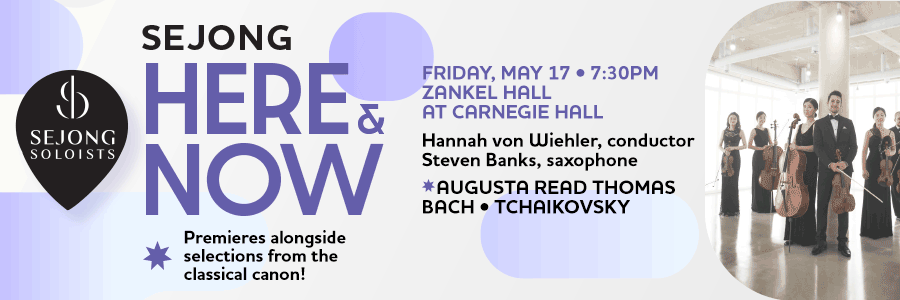
Jumping Off a Musical Cliff
I gravitated towards the things no one else in my family wanted: I taught myself to LOVE black cherry ice cream, simply because it was the flavor everyone else abhorred. More ice cream for me! The bassoon became the black cherry of musical instruments; in my words, “something that nobody wanted to play.” But, at age nine, I decided I did.
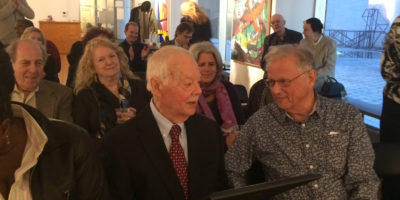
Crystallizing Emotion—Remembering Richard Hundley (1930-2018)
Richard Hundley’s songs were the first songs by a living American composer that I fell in love with and the love affair never ended.
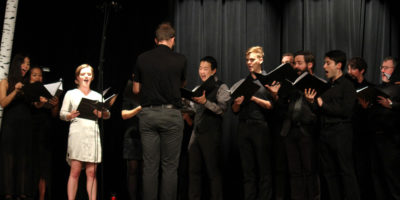
The Future of Choral Music
Highly chromatic or atonal music is rarely written for choirs, and the deep exploration of timbre found in instrumental pieces from later in the 20th century has mostly been ignored in favor of the pervasive choral sound inherited from the English cathedral tradition. But choral music in the 21st century is undergoing a cultural renaissance and performers are hungry for new types of exploration.
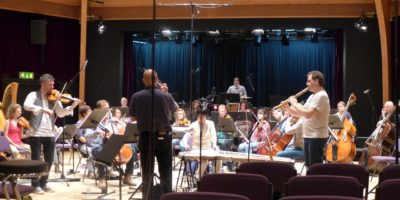
Some Practicalities of East-West Musical Collaborations
So you want to write music for the koto, the shakuhachi, or the shamisen? Well, you’re in luck. Up until fairly recently, you would have been hard-pressed to find a traditional musician who would be willing to oblige.

(Okay Ladies Now Let’s Get) In Formation
If we creators are present and attuned to what is happening, we as global citizens will speak up via our music for what is right and just. If you are waiting for the right moment, the right moment is now.
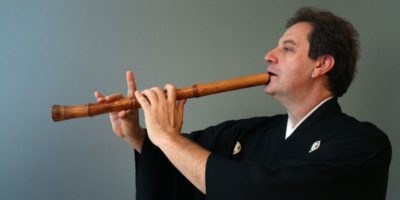
Elements of Japanese Music
The most ubiquitous and well-known concept in Japanese aesthetics is “Ma” which has been translated as “nothingness” or “emptiness”. But much more than the absence of something, it is a palpable entity. The Japanese also embrace the difference of timbres between the pitches on their musical instruments, and their music developed to accommodate that.
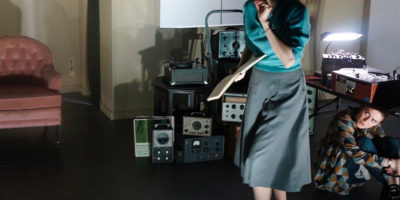
Daphne Oram's Sound Houses
Daphne Oram has clearly become a beacon for contemporary composers from Missy Mazzoli to Rene Orth to Anne LeBaron. Yet the question, voiced by many a respected music colleague, keeps resounding: “Who?” Daphne’s invisibility is at the center of my new play Sound House, which runs from February 20 to March 4 at the Flea Theater in New York City.

How It Happened (said John Cage): A Moment of Silence
Are all of our artistic offerings political in nature? When a composer writes a piece that is of its time and moment, is it a commentary on the current state of affairs? Do we want our audience to feel what we’re feeling, or to help them see how we’re seeing things?
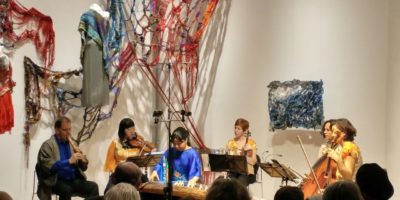
The Intersection of Genres
I had become professionally proficient in two very different, highly structured classical traditions. I was acutely aware of their musical parallels and seemingly irreconcilable differences, and as a teacher, performer, and erstwhile musicologist, pretty well steeped in their history.
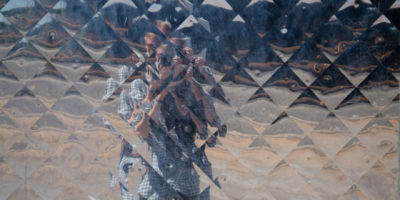
On Empathy
In English, invariably, we listen “to” a piece of music. Never “with” a piece of music. That little rut of syntax conceals a speed bump on what seemingly should be a musical express lane: the generation of empathy.
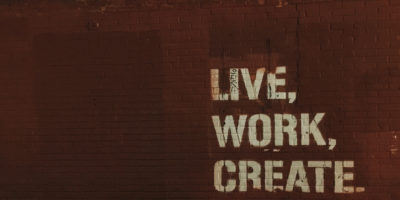
A Thousand Thoughts
When things get rough, depressing, or downright heartbreaking, we’re still supposed to make music, right? Jennifer Jolley continues her exploration of where and how music and politics best intersect and what a person (especially an artist person) can do in this time to fulfill the needs of other people.

How I Got Here (Making New Music with Japanese Instruments)
The first time I tried playing a shakuhachi, it was an epic fail. “As a classically trained flutist, surely it should not be so difficult to make a sound on an open tube of bamboo,” hrrumphed the arrogant 22-year-old that I was. I tried again and again, but could not make a sound. Later on I found a shakuhachi teacher and began what was to become a lifetime obsession with learning, teaching, performing, and composing music for the Japanese bamboo flute.

Crowd Out
What is the power of a crowd? In October 2017, people from all across Chicago gathered together in Millennium Park to perform David Lang’s crowd out, a 40-minute piece scored for “1000 people yelling.” The project was at turns incredibly difficult and extremely rewarding, and co-conductor Tim Munro reflects on the performance’s impact with this oral history.

All the Rage: When Is Music a Political Action
The social and political turmoil that accompanied the beginning of the 21st century led Jennifer Jolley to repeatedly question her career choices. But she came to understand where her music and her activism intersect.

The Genesis of a Return to Concert Music
It was not really that much of a leap for me, soon after completing my DMA at Columbia, to move into film composition. When I returned to concert music after years of just working in film, that was not too much of a leap either.
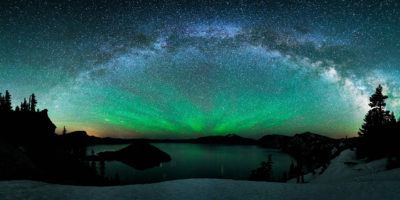
Implications of Polychromatic Music
The experience and practice of polychromatic music brings to auditory awareness new harmonic interactions and multidimensional spatial effects. Additionally, the increasing auditory perceptual discrimination developed in the practice may lead to innovations in ‘hearing’ research models and methodologies within science.

A Tool For Change: The Women Composers Database
Over the years, there have been a great many calls for diversification within the concert music community, and one of the most prevalent responses from decision-makers is that they don’t know where to find under-represented composers. Rob Deemer has led the development of a database to help, and now he needs your input too.
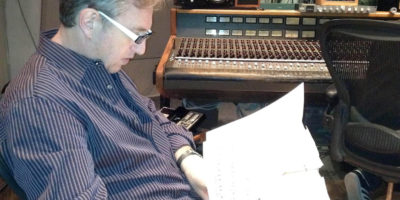
Becoming Real
Through trial and error—and a lot more error—I’ve found a few rules that have helped me carry on in the music business. I try to limit my activity to three things: concert composing, film composing, and teaching. (That’s already a lot.) When I stop worrying about money is when I make it.

2018 ASCAP Foundation Herb Alpert Young Jazz Composer Awards Announced
The ASCAP Foundation has announced the 15 recipients of the 2018 Herb Alpert Young Jazz Composer Awards which were established in 2002 to encourage young gifted jazz composers up to the age of 30. The recipients, who receive cash awards, range in age from 14 to 29, and are selected through a juried national competition. In addition, one of the recipients of the Herb Alpert Awards during the 2018 Newport Jazz Festival in August.
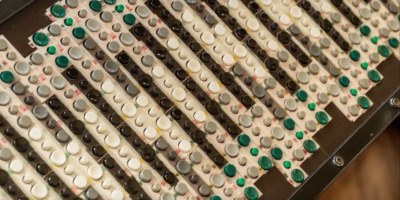
Creating Music with the Polychromatic System
I needed to find an intuitive and efficient way to work with 106 notes per octave. The immensity of new musical possibilities can seem overwhelming.
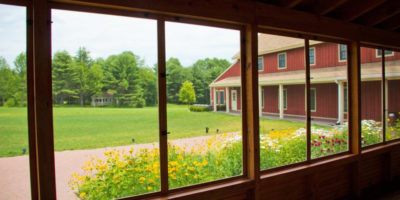
Get Out There: Alternative Opportunities for Composers and Performers
Residencies attached to big-name institutions and faculty (and often equally hefty fees) offer certain perks, but there are many opportunities out there for musicians and composers that are both more affordable and more accessible—and may even offer a better fit, depending on your needs and goals. Elisabeth Blair has assembled a list of 24 low-cost (or free) opportunities in the USA and Canada which you may not have heard about before, but should definitely check out. Had a great experience you don’t see in the list? Give it a shout out.

Tearing Down The Wall
All of us, as composers, have origin stories. If you’re like me, it may have been a series of revelatory moments, like an unseen hand guiding you down a path—to where, you may not have known until you got there.
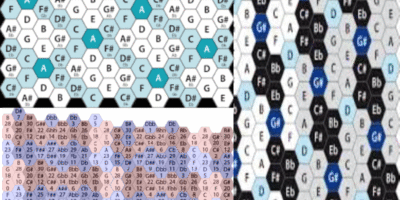
Understanding the Polychromatic System
Isolated methods of music practice are rapidly multiplying without a framework of integration and orientation for musicians and listeners to grasp. The polychromatic system is one framework of integration for the various scale configurations of micro-pitch music.
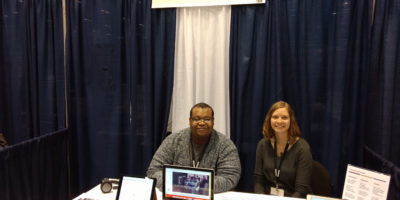
Stepping Forward at the Midwest Clinic
While still on the fence about attending the Midwest Clinic, the largest international band and orchestra conference in the world, I was pointed to a Facebook post from composer John Mackey who purchased a booth in the exhibit hall and was offering it up, free of charge, to self-published composers who are people of color and/or identify as women.


